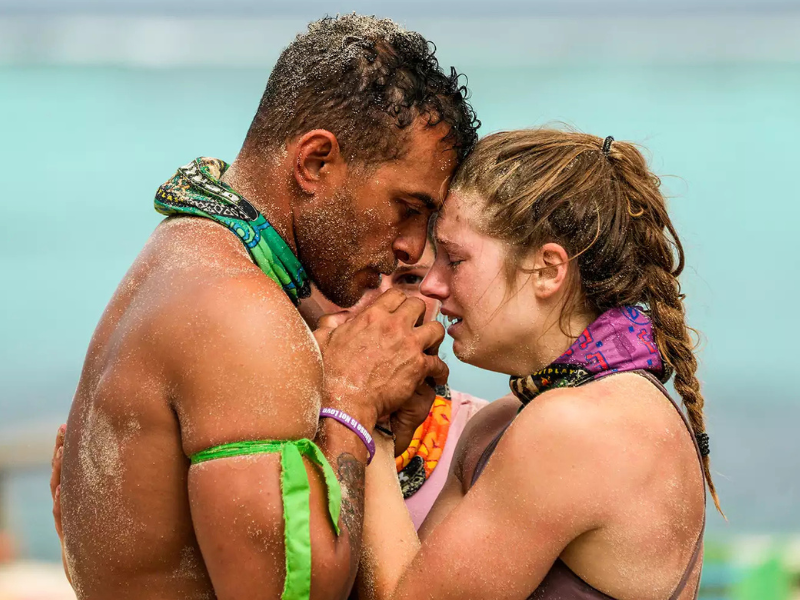by Lauryn Smith, Keshet Communications Coordinator
Working at Keshet has made me more aware of the ways that our society constantly perpetuates harmful stereotypes about people with disabilities. I now notice when spaces aren’t accessible or when people with disabilities aren’t included in conversations surrounding their needs. Ableism runs so much deeper than I ever thought, and I now feel that it’s my obligation to call it out and be a voice for these issues.
But recently, I saw something that gave me a sense of hope—proof that things are changing in how people with disabilities are viewed, even if slowly. One thing I love just as much as Keshet is reality TV. After a long day, it’s my perfect form of escapism, with high stakes and unforgettable drama. In recent years, we’ve started seeing more contestants open up about their experiences with disability and mental health. Kyland Young of The Challenge and Big Brother talks about his autism, Amanda Batula shares her struggles with depression on Summer House, and Rob McArthur, who is deaf, placed second runner-up alongside his son Corey on The Amazing Race. These moments are important because they provide visibility and send the message that people who face challenges are not alone.
If you’re an avid watcher of Survivor, then you know what big moment happened during the most recent episode. After the immunity challenge, Eva Erickson, a young woman with autism, became overstimulated and began to experience what she describes as an episode. Recognizing her distress, former tribemate Joe Hunter guided her through deep breathing and holding her hands to help her regain composure. It was at this moment that Eva felt comfortable to disclose her autism diagnosis with the group…and all of America. This moment was profound and emotional for all the castaways, even moving Survivor host Jeff Probst to tears (something that has never happened in the show’s 48 season history).
“I hope that the parents of kids with autism can look at their kid and see a little bit of me, and hopefully that my story can inspire them to believe that their kid is an amazing human, Eva shared. Her words resonate deeply because they challenge the common misconception that there’s something “wrong” with people who have autism or other disabilities. As Eva said, “Nothing is wrong with you! It’s part of who you are.” This is a core belief that many in the disability community hold–that we should see the “ability” rather than the disability.
What struck me most was how Joe didn’t try to fix Eva’s situation or minimize her experience. Instead, he gave her exactly what she needed: support and understanding. He stayed calm, made her feel safe and never showed an ounce of judgment. Watching this unfold on TV, I couldn’t help but think about the incredible staff we have at Keshet. Every day, they show up to ensure that all of our participants feel valued, supported and a sense of belonging.
Eva’s decision to share her diagnosis was an act of self-acceptance. It was an opportunity for her to teach others about what autism means for her—and, in doing so, to normalize the conversation around disability. This wasn’t just a moment on TV; it was a powerful message to anyone watching. It showed that vulnerability isn’t something to be ashamed of—it’s something that makes us human.
Working at Keshet, I see moments like this every day. I see kids and adults learning to advocate for themselves, using tools that work for them and being supported by a community that is there for them unconditionally. I see staff who, like Joe, don’t rush to “fix” someone’s experience but, instead, meet them where they are.
This episode reminds me that the support and understanding we give each other—whether in the context of a game like Survivor or in our daily lives—are so important. It’s the kind of community we strive to create at Keshet, where people feel accepted for who they are, no matter their differences. I hope this episode, along with the work we do at Keshet, can inspire others to embrace vulnerability, show compassion and recognize the ability in everyone.

